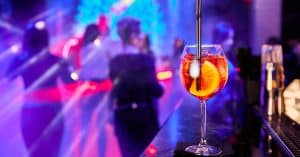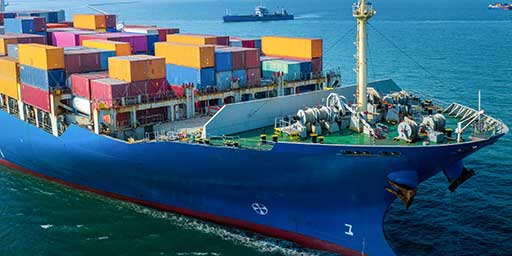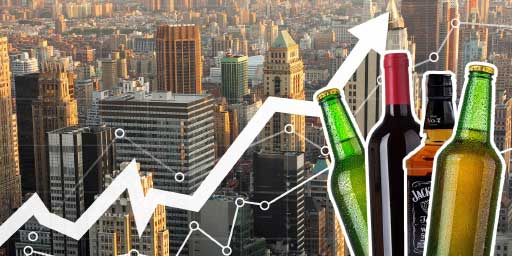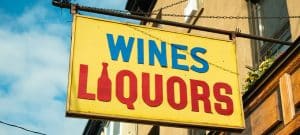Get Your Alcohol License NYC & NY State Fast – Start Selling
: How To Get It Fast – Updated for 2024
- Licensing Experts
- FAST Service
- Money Back GUARANTEE
NY Liquor License Categories
- On Premises Alcohol Sale
- Off Premises Alcohol Sale
- Supermarket
- Grocery / Drug Store
- Liquor Store
- Other
- Temporary 1 Day Permits
- Wholesale Alcohol License in New York
- Other
Need to Get Your New York Liquor License?
- Hundreds of Licenses Approved
- Fast Processing
- Guaranteed Results
Contact us for a FREE 15-minute consultation and discover how we can streamline your operations, ensuring you stay compliant while maximizing profitability. Choose Rezzonator Services, and focus on your success while we handle the details.
Popular NY Liquor License Categories
Drugstore or Grocery Beer |
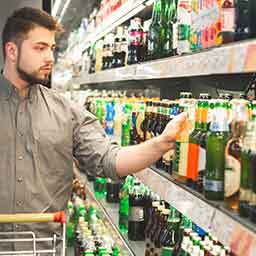 |
Great for selling only beer for off-premises consumption. If you desire to be able to sell wine coolers and other wine products, you need the license listed below.
This license is usually required for operating grocery stores, supermarkets and drugstores that sell beer (think CVS or Wallgreens). However it should be noted that most retailers will also opt for the license below because it extends the privileges.
Get Started
Grocery or Drug Store Beer And Wine Products
This license is good for selling beer and wine products for off-premise drinking. The license title is a bit misleaning because “wine products” isn’t related to actual wines. A “wine product” would be any product that is under 6% alcohol by volume content. Wine coolers, Smirnoff Ice or Mike’s Hard Lemonade would qualify as a wine product.
Outside the ability to see “wine products” this license offers the same privileges as the Grocery Beer license (above).
Get Started
Restaurant Wine |
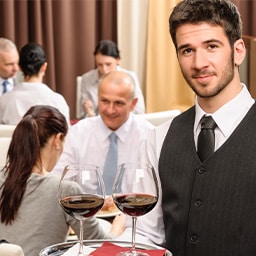 |
The on-premises consumption and sale of beer and wine can be authorized by this license. However, the Restaurant Wine license is specifically intended for establishments that primarily generate their profits from food sales and not alcohol – hence the “Restaurant” in the title. Bars, which typically make most of their money from alcohol, do not qualify under this license. If you are interested in obtaining more information about the restaurant wine and beer license, please click on this link.
Obtaining this license is crucial for any restaurant that aims not just to survive, but to flourish, particularly in the aftermath of the 2020 pandemic. Contact us to inquire about this license and determine if your proposed location or current business meets the requirements.
Get Started
Eating Place Beer |
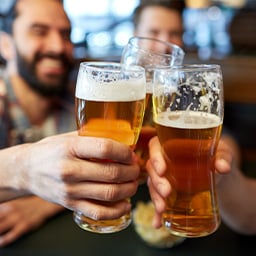 |
This license is specifically for the consumption of beer at the establishment. In order to obtain this license, it is necessary to both prepare and serve food on the premises. The primary source of income for the establishment must come from the sale of food, not beer. However, it is permitted to sell beer for consumption outside of the premises. It is important to note that the sale of wine is not allowed under this license.
This license fits establishments which are not quite a restaurant in the traditional sense. For example a deli which has a sit-down-and-eat area.
Get Started
On Premises Liquor (aka Standard NY Bar License) |
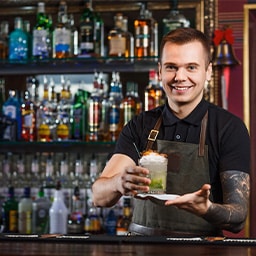 |
This allows for on-premises liquor consumption of liquor, wine and beer. Only beer may be sold for off-premises consumption. Food must be served at the establishment. Note that unlike the Restaurant Wine and Eating Place Beer License, does NOT require that food is your main source income.
Because the full sale of liquor (beer, wine and hard spirits) is allowed under this license, it is subject to more requirements and conditions that must be met especially within New York City. Contact us with your situation.
Also, for more detailed information on the New York bar license please click here.
Get Started
Cabaret Liquor License |
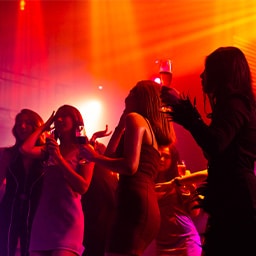 |
If you own a restaurant that has a dance area or an area for live music performance, then the Cabaret Liquor license may be what you need. Cabaret Liquor follows the same rules as the On Premises Liquor (above) but it is given for a location specializing in musical entertainment. To put it in simple terms, this license applies to you if you have a dance floor or host shows.
This license implies a lot of other requirements in order to be approved. For example noise mitigation and dealing with disturbances your establishment may cause in the neighborhood. Every situation is different, and location matters. Contact us for details.
Get Started
Wholesaler Or Manufacturer |
 |
If your aim is to distribute beer, wine, and liquor to other merchants, then this license is likely to be the appropriate choice. In most cases, those that hold this license cannot also hold a retail license (like the ones above). The NY wholesaler liquor license class covers a broad range of circumstances. To find out what’s right for your specific situation please call us for more details.
You can take it even further by becoming a manufacturer of beer or wine and liquor. There are many benefits to being an alcohol manufacturer. Whether it’s beer, wine or hard alcohol, there are specific licenses to suit your needs.
Get Started
Liquor Store License |
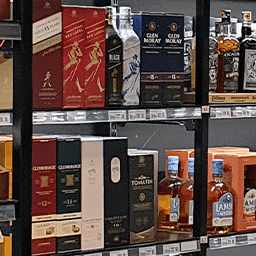 |
This allows you to sell liquor (which includes wine). You cannot sell beer under a Liquor Store License. Liquor store licenses are subject to both state and sometimes local regulations as is the case for the liquor store license NYC. If you are planning to open a liquor store you should contact us as early as possible. This is important so as to avoid possible problems and issues which can arise from things like your location, the license history or other circumstances. Click here for more information on the Liquor Store license or contact us with your specific situation.
Liquor stores can be very profitable but the process of obtaining a license is complex and has many elements that must be addressed in order to make sure your application is approved.
Get Started
Importing Alcoholic Beverages |
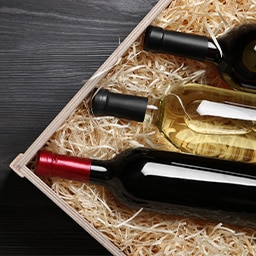 |
If you would like to import alcohol we can help you deal with all aspects of this process.
Importing entails licenses both at the state and federal level. There are also specific guidelines which must be followed before the foreign drinks can enter the US market.
Call us and let us help you setup your alcohol import business.
Get Started
Contact Us For Other Types Of Liquor Licensing
There are many categories for obtaining a liquor license.
Price: Contact us for a quote. Prices vary depending on license type (category). We will help you figure out exactly what you need.
Get Started
FAQ: New York Alcohol Licensing
Q: How much is a liquor license?
A liquor license can range from $3,900 to $10,000 depending on the work that needs to be done. For example: If you’re planning to operate in New York City, you may need to deal with an extra layer of procedures in order to make sure you’re compliant not only with state regulations, but city as well. Each situation is different.
Q: Do I need a good credit score to get an alcohol license?
No. This is one of the most common misconceptions. Your credit score has nothing to do with the licensing process. However, once you are licensed, pending on your business model, you may find it hard to get your drinks from a wholesaler with bad credit. In most cases you’ll be asked by the wholesaler to pay upfront, instead of the usual net 30 agreements.
Q: Can I get a liquor license if I have a police record, such as a DUI?
In most cases you can get your license as long as you disclose it. What you DON’T want to do is try to pretend your police record doesn’t exist. Even if it happened long ago, or you think that your record has been expunged, it will usually come up and it will create problems. First, New York State does NOT have laws to expunge criminal records. Second, in the vast majority of cases a infraction is not a problem as long as it is disclosed. Things such as DUI’s are never a problem. Check out our article on getting a New York liquor license with a DUI.
Q: What types of alcohol licenses can I apply for in New York State?
Each license type has specific eligibility and application requirements.
-
- On-Premises Licenses for places like bars, restaurants, and hotels where customers can drink on-site.
- Off-Premises Licenses for liquor and wine stores where alcohol is purchased for home consumption.
- Manufacturing Licenses for producing alcohol, such as for breweries, wineries, and distilleries.
- Wholesale Licenses for distributing alcohol to retail outlets.
Q: What general requirements must I meet to apply for an alcohol license in New York State?
These are the most common requirements:
-
- Be at least 21 years old.
- Be a U.S. citizen or legal permanent resident.
- Have a clean record with no felony convictions (unless they have a Certificate of Relief from Disabilities).
- Submit detailed information about the business location, such as floor plans and lease documentation.
- Complete financial and personal disclosures.
- Notify the local municipality or community board 30 days before applying.
Q: Are there location restrictions for alcohol licenses in New York State?
Processing times can vary based on the type of license and how complete the application is, often taking several months. If you need to serve alcohol sooner, you might be eligible for a temporary permit while your main license application is reviewed.
Q: How long does it take to get an alcohol license in New York?
Proximity Rule: Establishments must not be within 200 feet of a school, church, or other place of worship.
500-Foot Rule: In areas where three or more on-premises liquor licenses are already within 500 feet, applicants must show why another license would benefit the public.
Q: Can an alcohol license be transferred to a new owner in New York?
Generally, alcohol licenses in New York are non-transferable, meaning new owners must apply for their own license. In some cases, like corporate ownership changes, an existing license might be amended. It’s best to consult a professional.
Q: Is alcohol server training required for employees in New York?
Although New York State doesn’t mandate server training statewide, the State Liquor Authority strongly recommends it. Completing Alcohol Training Awareness Programs (ATAP) can help reduce penalties for violations, and some municipalities may require it.
Q: What’s the difference price-wise between an alcohol license in NYC vs NY State?
New York City alcohol licenses are more expensive due to added layers of complexity in the application process.
Q: How are Liquor Stores applications different in New York City vs NY State?
Usually liquor stores within NYC are more competitive due to saturation. Remember that a liquor store license is given by the NY State Liquor authority based on public convenience. Because NYC is more saturated with liquor stores, it is sometimes harder to make the argument for public convenience. This is why location is very important when considering a liquor story anywhere, but especially within New York City. You can go here for more information on how to open a liquor store in New York.
Q: How do on-premises alcohol licenses differ in New York City vs NY State?
On-premises liceses such as those for restaurants, bars or nightclubs, especially those that want to offer full liquor not just beer and wine, are usually more complex to obtain. This is because within NYC, the State Liquor Authority takes into consideration public convenience and how many full liquor licenses are active around your proposed establishment.
Get Your Alcohol License Now
CONTACT US
Table of contents:
- New York Liquor Licensing
- Popular Liquor Licensing Categories
- New York Drugstore or Grocery Beer
- Grocery or Drug Store Beer And Wine Products
- Restaurant Wine
- Eating Place Beer
- On Premises Liquor (aka Standard NY Bar License)
- Cabaret Liquor License
- Wholesaler Or Manufacturer
- Liquor Store License
- Importing & Exporting Alcoholic Beverages
- Other Types Of Liquor Licensing
- FAQ: NY Alcohol Licensing
- Federal Alcohol Permit
- New York State & New York City Liquor License Primer
- Liquor License NY Facts
- Warning For Retailers
- Related News – Local and National
Get Your Alcohol Bar License NYC and NY State
The Alcohol Import License (Permit)
The Resurgence of Alcohol Sales in New York: A Post-Pandemic Boom
Federal Alcohol Permit
Depending on your specific circumstances you might need to have what’s popularly known as a Federal Liquor License. This can apply to you especially if you’re a manufacturer of alcohol, wholesaler or if you’d like to do import and export alcoholic beverages. The Federal Permit is just as important as your New York State license because it is essential in order for you to operate your business. We can get both your NY State Liquor License and Federal Permit simultaneously saving you time and headaches. Call us and find out if this permit applies to you and how we can help.
The right to sell liquor is something that many business people in the industry take for granted. Once you have your licensing done make sure that you follow and respect all the rules that apply to your specific class.
If you are selling to the public, make sure you check ID’s. If you are a wholesaler, make sure you keep tabs on the sales and the taxes that you owe. Getting your own accountant is an important part of the process.
Get Started
Liquor Licensing in NY: Everything You Need to Know
Permit & Licensing Types
The length of a license and the costs involved differ depending on the type, but it is crucial to bear in mind that the regulations governing alcohol in New York State divide liquor licenses and permits into two main categories: retail licenses and wholesale licenses. The wholesale licenses cover businesses that store, produce, or distribute packaged alcoholic beverages to retailers. The retailers, on the other hand, are authorized to procure, store, and sell alcohol to the public (in accordance with legal guidelines) for both on-site and off-site consumption.
Who’s Eligible
Every application is examined to determine if it meets the requirements for the desired license. There are three primary aspects evaluated during the approval process for a liquor license in New York:
- The principals on the license.
- The premises used.
- The source of capital used for the business.
These are the fundamental factors by which a permit is evaluated. Bear in mind that a permit is granted to a Corporation (for example, XYZ Inc.), the top executives of that corporation (such as John Doe, president of XYZ Inc.), and a site where the enterprise will be conducted (like 34-29 Cherry Lane, New York, and so on).
The question often arises as to what would disqualify someone. There are really only 3 factors that would present some issues when starting. Please note however, as with all things, situations differ so please call us for more info if any of these (except Nr. 1) applies to you. Here they are:
- Younger than 21 years of age. Obviously if you cannot drink, then partaking in a business that’s all about alcohol doesn’t make much sense.
- You are NOT a United States Citizen or Permanent Resident with a right to work. Having a liquor license in NY implies that you will be engaged in commercial activities in New York, which also means working legally in the United States. However, there are some exceptions for individuals who arrive on an investor’s visa and possess the necessary financial resources to conduct business in the US.
- You have been convicted of a crime or misdemeanor. Based on the ABC Law, there is a certain degree of flexibility depending on the nature of the offense, the outcome of the case, and your individual circumstances.
Some licensing require the applicant to deal with their community board. This is must be done, in some cases, before the main license application can be submitted 30 days later.
Contact us with your specific details.
Each circumstance is unique, so consider the information given as a foundation for comprehending the process of obtaining a liquor license in New York State. Regardless of your preference, whether it be a distributor or a license for selling beer in a grocery store, ensure that you thoroughly research and acquire the most competent legal assistance available.
Get Started
Liquor License NY Facts
The electrifying atmosphere of New York City’s after-dark entertainment is renowned, and a notable component of this lively setting is its assortment of bars, eateries, and clubs offering a wide range of alcoholic drinks. A crucial figure responsible for the smooth operation of this thriving nightlife is the “NYC Liquor License” – an authorization that grants establishments the legal right to sell alcohol. Although the steps involved in acquiring this license are widely known, let’s delve deeper into a few lesser-known details about the liquor license in New York.
The Historical Context
The history of liquor licenses in NY traces back to the era of prohibition. When prohibition ended in 1933, a liquor license became a necessity for businesses wanting to sell alcohol. The current operation of liquor licenses is influenced by the historical background, leading to the implementation of strict measures by the government to promote responsible alcohol selling and consumption.
Not One, but Several Types
Contrary to common belief, there isn’t just one type of liquor license in New York. The state issues different licenses based on factors such as the type of establishment, the kind of alcohol sold, and the time of sale. For instance, a restaurant selling only beer will need a different license than a nightclub offering a full bar.
The Role of the Community
Another lesser-known fact is the substantial role local communities play in the liquor license application process. When a business applies for a new license or a renewal, the State Liquor Authority (SLA) notifies the local community board. The board can support or oppose the application, and while their decision is not binding, the SLA takes it into consideration.
The Price Varies
The cost of a liquor license in NY is not a flat rate. It varies depending on factors like location, the type of license, and even the seating capacity of the establishment. This variation means that two similar establishments located in different parts of the state could end up paying different amounts for their licenses.
The 200-Foot Rule and 500-Foot Rule
Two unique aspects of New York’s liquor licensing laws are the 200-foot rule and the 500-foot rule. The 200-foot rule prohibits the issuance of liquor licenses to establishments on the same street and within 200 feet of a school or place of worship. The 500-foot rule restricts the SLA from approving a license for on-premises liquor consumption if there are already three or more existing establishments with such licenses within 500 feet.
The Role of a Liquor License Consultant
Securing a liquor license in NY can be a complex process, and a lesser-known fact is the existence of liquor license consultants. Rezzonator Services liquor licensing experts have an in-depth understanding of the application process and can help navigate the legal landscape, significantly increasing the chances of a successful application.
Conclusion
Securing a liquor license is a critical step for any business intending to serve alcohol in New York. Although it may seem complex, gaining knowledge about these lesser-known elements can offer valuable perspectives and make the process of acquiring a New York liquor license more seamless. Whether your goal is to establish an intimate wine bar in downtown Manhattan or a casual beer establishment by the beach in Long Island, comprehending New York’s liquor licensing procedure is an essential component for achieving success.
Get Started
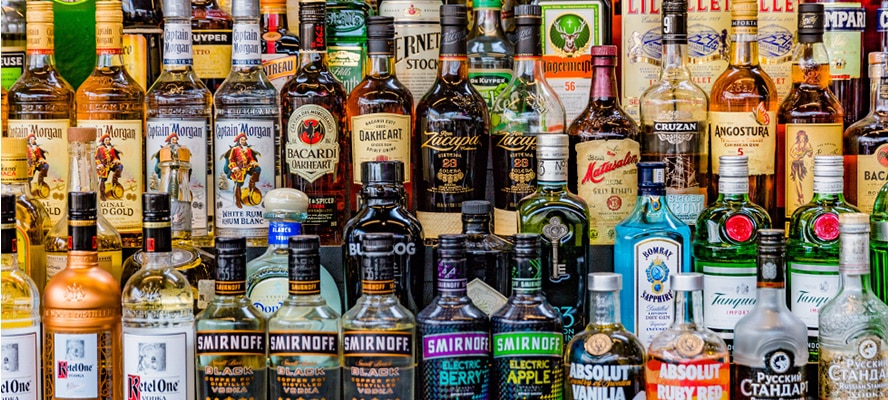
Warning For Retailers
Please remember that the Liquor Authority takes selling alcohol to minors very seriously. Just because someone looks older doesn’t mean that he or she is.
Such violations can attract heavy penalties and may shut down your business permanently. Make sure to ID any and all persons.
Get Started
On-Premises Licenses
On-premises licenses are issued to establishments like bars, restaurants, taverns, and hotels. These licenses allow the sale of alcoholic beverages for consumption on the premises.
There are a few things to understand when discussing on-premises liquor licenses. They vary a lot across the state. Especially if you want a liquor license NYC. That’s because NYC liquor licenses add another layer of complexity at the city level.
Bar and Grill Liquor License
This type of license is required for any establishment that has a lounge or bar area. It allows the sale of all types of alcoholic beverages for consumption on the premises.
Get Started
Off-Premises Licenses
Off-premises licenses are issued to businesses like liquor stores, wine stores, grocery stores, convenience stores, and drug stores. These licenses allow the sale of alcoholic beverages for consumption off the premises.
Liquor Store License
This license allows the sale of liquor and wine for consumption off the premises. Beer is not allowed to be sold under this license.
Grocery Store Beer/Wine Products License
This license allows grocery stores to sell beer and wine products for off-premises consumption. The store must meet specific inventory requirements, with food and drugs making up more than 50% of the inventory.
Get Started
Manufacturing Licenses
Manufacturing licenses are issued to businesses that produce alcoholic beverages, such as breweries, wineries, distilleries, cideries, and meaderies.
Brewery License
This license allows the production of beer and the sale of beer to wholesalers, retailers, and directly to consumers in sealed containers for off-premises consumption.
Winery License
This license allows the production of wine and the sale of wine to wholesalers, retailers, and directly to consumers in sealed containers for off-premises consumption.
Get Started
Need Help With Alcohol Licensing?
CONTACT US
Temporary Permits
Temporary permits are issued for the sale of alcoholic beverages at specific events or gatherings.
One-Day Beer and Wine Permit
Also known as a Temporary Beer, Wine, and Cider Permit, this permit authorizes the sale of wine, beer, or cider at retail for consumption at a gathering for a period of 24 hours.
Ball Park Beer License
This license is required for athletic fields and stadiums where patrons can consume beer. This includes racetracks and baseball fields, but not educational institutions.
Get Started
The Alcohol Industry in New York State: A Flourishing Sector
The alcohol industry in New York State is a vibrant and thriving sector, contributing significantly to the state’s economy. According to the Brewers Association, New York State is home to over 500 craft breweries, ranking 3rd in the nation. This robust presence of breweries indicates a strong market for alcoholic beverages and a thriving culture of craft beer production and consumption.
Moreover, the alcohol industry is not just about beer. Spirits and wine also form a significant part of the industry. As per data from Alcohol.org, in America, 46 percent of alcohol consumption is beer, followed by spirits (37 percent) and wine (17 percent). Between 2000 and 2018, consumption of spirits has grown 28 percent, followed by a slight rise (6 percent) in wine. This data suggests a growing market for spirits and wine, alongside beer.
Get Started
Positive Impact on the Economy
The alcohol industry, including the production, distribution, and sale of alcoholic beverages, has a substantial economic impact. It generates revenue, provides employment, and contributes to local economies. In New York State, the alcohol industry’s economic impact is significant, with the craft beer sector alone contributing millions to the state’s economy.
Get Started

Why Rezzonator Services?
Experience the power of specialization with Rezzonator Services – your ultimate partner in securing Alcohol Licensing. We’re not your typical jack-of-all-trades firm dabbling in everything from divorce law to accounting. No, we’re masters of one – Alcohol Licensing.
With a track record of thousands of successful cases, we’ve become the go-to authority in the industry. From globally recognized brands like Heineken to your favorite local deli, our expertise is trusted and sought after by all.
Don’t leave your liquor license to chance. Choose Rezzonator Services, where success isn’t just a possibility, it’s a guarantee. Remember, when it comes to Alcohol Licensing, we’re the only name you need to know.
Contact us today!
GET STARTED
- Alcohol Licensing Experts
- Thousands Of Cases Approved
- Money Back Gurantee
- NO Pressure FREE Consultation

